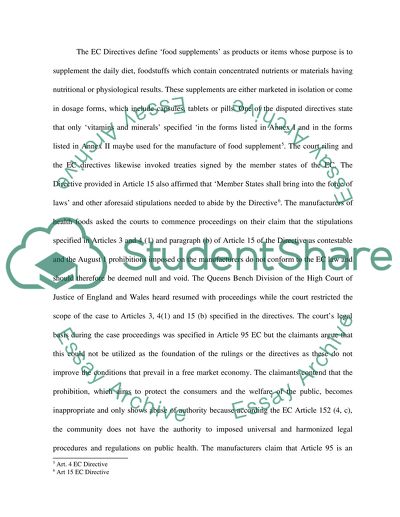Cite this document
(Directive on Food Supplements Report Example | Topics and Well Written Essays - 2000 words - 1, n.d.)
Directive on Food Supplements Report Example | Topics and Well Written Essays - 2000 words - 1. https://studentshare.org/law/1539858-european-law
Directive on Food Supplements Report Example | Topics and Well Written Essays - 2000 words - 1. https://studentshare.org/law/1539858-european-law
(Directive on Food Supplements Report Example | Topics and Well Written Essays - 2000 Words - 1)
Directive on Food Supplements Report Example | Topics and Well Written Essays - 2000 Words - 1. https://studentshare.org/law/1539858-european-law.
Directive on Food Supplements Report Example | Topics and Well Written Essays - 2000 Words - 1. https://studentshare.org/law/1539858-european-law.
“Directive on Food Supplements Report Example | Topics and Well Written Essays - 2000 Words - 1”. https://studentshare.org/law/1539858-european-law.


